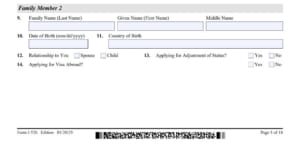 U.S. Citizenship and Immigration Services (“USCIS”) has announced that it will permanently close its Bangkok Field Office on December 31, 2019. The office will accept applications and petitions until October 18, 2019 after which the U.S. Embassy in Bangkok will assume responsibility for certain limited services previously provided by the USCIS Bangkok Office.
U.S. Citizenship and Immigration Services (“USCIS”) has announced that it will permanently close its Bangkok Field Office on December 31, 2019. The office will accept applications and petitions until October 18, 2019 after which the U.S. Embassy in Bangkok will assume responsibility for certain limited services previously provided by the USCIS Bangkok Office.
Bangkok office, which includes the USCIS District Office, has been the office that has accepted applications and petitions from countries in the Asia-Pacific region that lack a USCIS Field Office. This includes certain cases such as Form I-130 Petitions for Alien Relatives provided the U.S. Citizen and foreign national spouse reside within the jurisdiction of a consular district around Asia. Specifically, clients filing for Direct Consular Filing in Ho Chi Minh City, Indonesia, Cambodia and other South East Asian countries have had their cases adjudicated through Bangkok. While USCIS has announced that it intends to keep some Asia-Pacific field offices open, such as those in Guangzhou and Beijing, it is unclear how future cases that have normally been approved by the Bangkok office will continue to be adjudicated.
Bangkok’s closure comes following a series of USCIS overseas office closures in recent months. In May of this year, USCIS announced the closure of the USCIS Manila Field Office and just last month, the USCIS Seoul Field office.
For more information, contact us at




